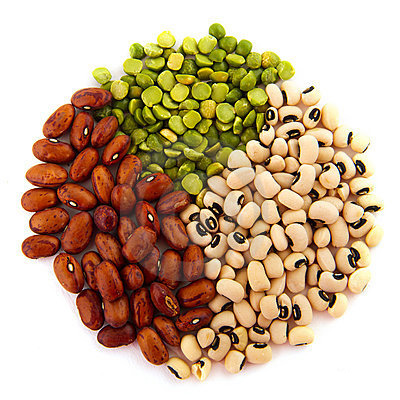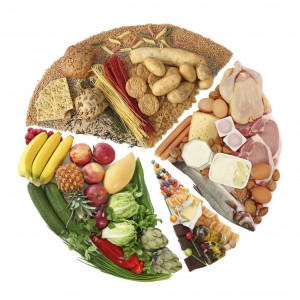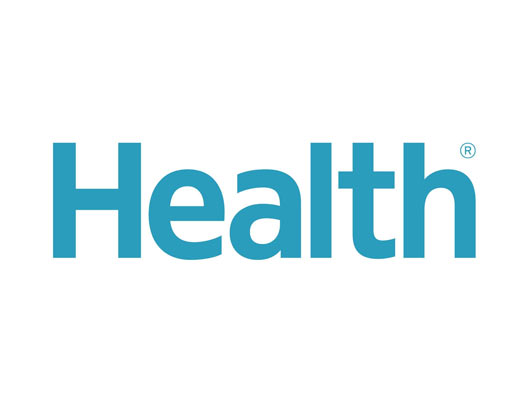 Certain medical conditions require a person to restrict their fiber intake, including Chron’s Disease, Small Bowel Obstruction (SBO), and acute diverticulitis. Your medical adviser may also recommend a Low-Fiber Diet if there is a narrowing of the bowel due to a tumor or an inflammatory disease; after bowel surgery, or when treatment, such as radiation, damages or irritates the gastrointestinal tract. As part of the transition process, following a Low-Fiber Diet plan is crucial to the recovery process.
Certain medical conditions require a person to restrict their fiber intake, including Chron’s Disease, Small Bowel Obstruction (SBO), and acute diverticulitis. Your medical adviser may also recommend a Low-Fiber Diet if there is a narrowing of the bowel due to a tumor or an inflammatory disease; after bowel surgery, or when treatment, such as radiation, damages or irritates the gastrointestinal tract. As part of the transition process, following a Low-Fiber Diet plan is crucial to the recovery process.
Here are some guidelines to follow when transitioning to a regular diet.
Gluten-Free Whole Grains
Many of our patients find gluten-free foods to be very beneficial to their diets. Eating a breakfast of whole grains in the mornings provides fuel throughout the day, regulates blood sugar, and is a great beginning for many people. Try starting each day with one serving of these grains: amaranth, brown rice, millet, or quinoa, mixed with olive oil, Himalayan salt, and avocado. ¹/ ³ to ½ cup of the grain is one serving.
Download the entire printable version of the Digestive Health Guide for free. Inside you will find tips on stool softeners, recipes and more.
Leafy Green Vegetables
One of the most alkalizing foods available, it is well worth your investment in acquiring a taste for green leafy vegetables. Stir-fry greens well with a little olive oil and garlic.
Choose from the following: collard, dandelion, kale, mustard, sorrel, Swiss chard.
Caffeine
Caffeine is a gastrointestinal (GI) irritant that can cause GI upset or diarrhea. Try to limit or omit these from your diet: coffee and decaffeinated coffee, iced tea, green tea and other teas containing caffeine, chocolate drinks, any energy drinks with caffeine or stimulants, and mate.
 Produce
Produce
- Frozen Vegetables. Frozen vegetables can actually be more nutrient-rich than their fresh counterparts. Vegetables are frozen as soon as they are picked rather than being trucked many miles and then left to sit on store shelves. A good variety of organic frozen vegetables is essential for anyone who wants to make healthy and tasty meals in ten minutes (including preparation, cooking, and cleanup). Good frozen vegetables include Asparagus, butternut squash, broccoli/cauliflower mix, and chopped spinach. Chopped spinach lends a creamy, cheesy-like texture to the vegetables.
- Avocado. Men may eat up to 1 whole avocado per day; women may eat ½ avocado per day.
- Beets and Bananas. It is important to have both beets and bananas on hand for bowel elimination. Beets thin gall bladder bile while cleaning the liver and intestinal tract. Steamed and eaten in the evening, they will often ensure healthy elimination the next morning. Conversely, bananas are helpful in slow elimination.
Liquids
Please drink six to eight 8-oz. glasses of water each day. Plastic water bottles should be avoided, due to their carcinogenic properties.
- Filtered Water. It’s always best to use a filtered water source like a Brita®, reverse osmosis process, or carbon filtration method to produce clean, healthy water for your gut.
 Bottled Water. Mountain Valley Spring Water® has been bottled at the same natural spring source for 135 years in Arkansas. We believe it is the only bottled water source that does not have additives such as chlorine. Due to an FDA law, any bottled water that isn’t bottled at the source must include chlorine and other chemical additives. Since Mountain Valley® bottles at the source, they are not required to include these additives. In addition, this is the only water that can be purchased in glass bottles. Although this is more expensive – $14.40 per 5 gallons – it is worth the price to avoid the cancer-causing plastics of other bottled waters.
Bottled Water. Mountain Valley Spring Water® has been bottled at the same natural spring source for 135 years in Arkansas. We believe it is the only bottled water source that does not have additives such as chlorine. Due to an FDA law, any bottled water that isn’t bottled at the source must include chlorine and other chemical additives. Since Mountain Valley® bottles at the source, they are not required to include these additives. In addition, this is the only water that can be purchased in glass bottles. Although this is more expensive – $14.40 per 5 gallons – it is worth the price to avoid the cancer-causing plastics of other bottled waters.- Coconut Water. Coconut water is a natural electrolyte drink that will give you an instant boost when feeling any cleansing reactions. Drink this during or after workouts or when you experience headaches or fatigue. Due to the sugar content, limit your intake to 12 oz. per day and avoid drinking it at night.
- Organic Lite Thai Kitchen Coconut Milk. A double press process removes some of the fat of typical coconut oil. This is a great substitute for oil in a veggie stir-fry. It is also great in herbal teas. It is free of preservatives, additives, and derivatives contained in many other coconut milks.
- Living Harvest Hemp Milk. Unsweetened Original. Use it to replace milk or cream for your coffee, but use it sparingly since it is processed.
Download the entire printable version of the Digestive Health Guide for free. Inside you will find tips on stool softeners, recipes, and more.
Related Content:
Research and Success Rates
- Study Results for a Non-Surgical Bowel Obstruction Treatment
- Study Results for a Non-Surgical Bowel Obstruction Treatment
- Bowel Obstruction Success Rates
Questions Answered
- Recurring Small Bowel Obstruction Treatment Frequently Asked Questions
- The Most Common Causes of Bowel Obstruction and How to Prevent It
- Bowel Blockage Symptoms
- How to Prevent Bowel Obstruction
- Can Diverticulitis Cause Bowel Obstruction?
- Seven Signs of Intestinal Blockage
- What to know before accepting an IBS Diagnosis
- How Long Does a Bowel Obstruction Last?
- What is the Cause of a Small Bowel Obstruction and What Are Your Options for Treatment?
- How Will My Lifestyle Change with Small Bowel Obstructions?
- Is There a Natural Treatment for Small Bowel Obstruction?
- What SBO Patients Can Expect From Treatment
Treatment
- At a Glance: Bowel Obstruction
- Bowel Obstruction
- Bowel Obstruction – Need Help Now?
- Bowel Obstruction Treatment
- [Infographic] The Main Causes of Bowel Obstructions
Patient’s Stories
- Bowel Obstruction: Patient Story Update
- Video Testimonial – A Mother’s Journey to Recovery: Small Bowel Obstruction
- What Is Bowel Obstruction? – A Patient’s Perspective
- A Glimpse into a Brave Young Boy’s Journey with CHARGE Syndrome
- Success Story: Clear Passage Allowed Me to Resume My Adventures
- Emergency Small Bowel Obstruction Surgery in India
- An End to Bowel Obstructions
Diet
- How to Relieve a Bowel Obstruction: Diet Guide
- Recipes For Bowel Obstruction Patients
- Diet Guide for Avoiding Bowel Obstruction
- Diet Modifications to Help You Handle a Small Bowel Obstruction
- Digestive Health Guide
- Bowel Obstruction: Diet & Lifestyle Recommendations
- Minimal Fiber Diet for Digestive Disorders
- Nutritional Guidelines
- Transitioning to a Regular Diet from a Low or Minimal Fiber Diet
- Low Fiber Diet for Digestive Disorders
Bowel Obstruction | SBO | SIBO





















